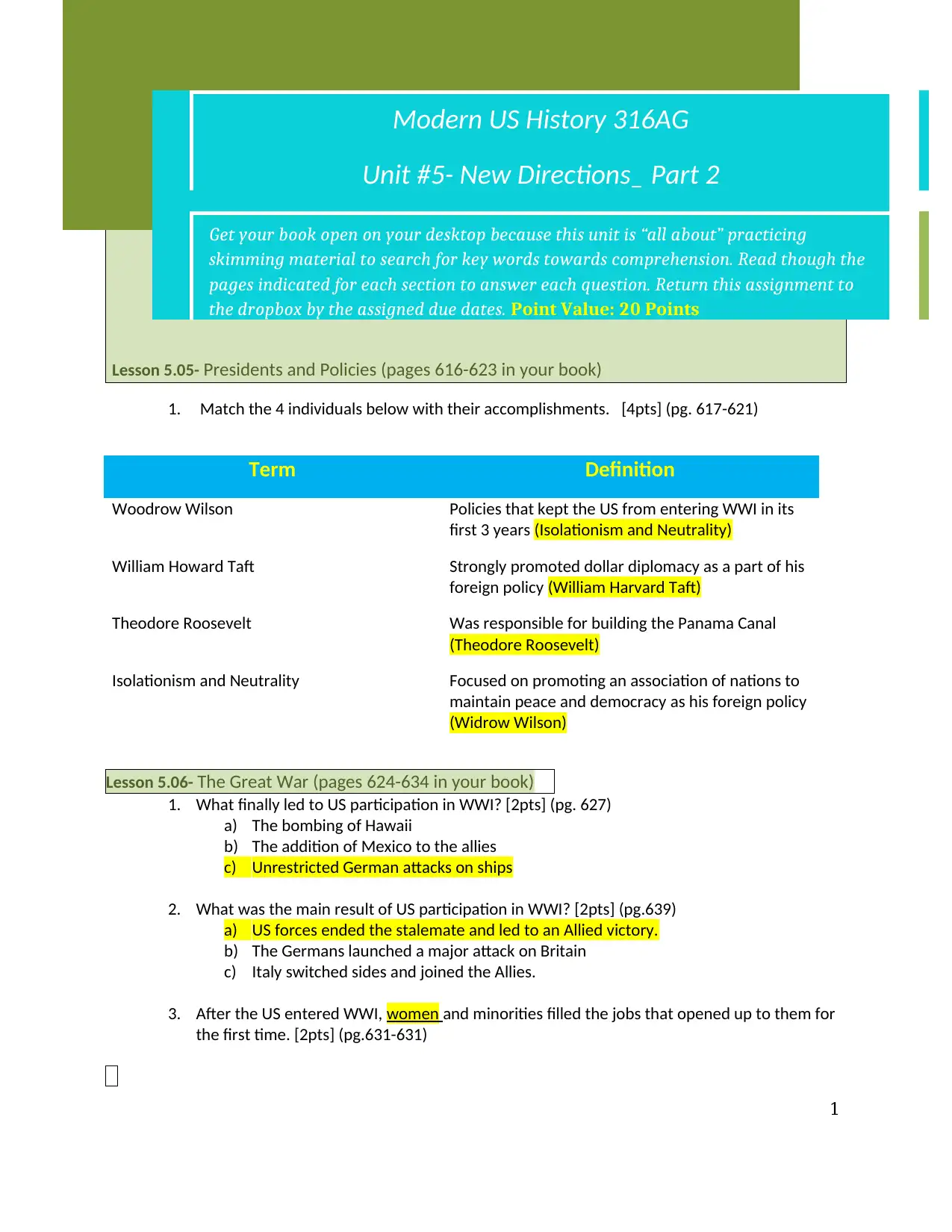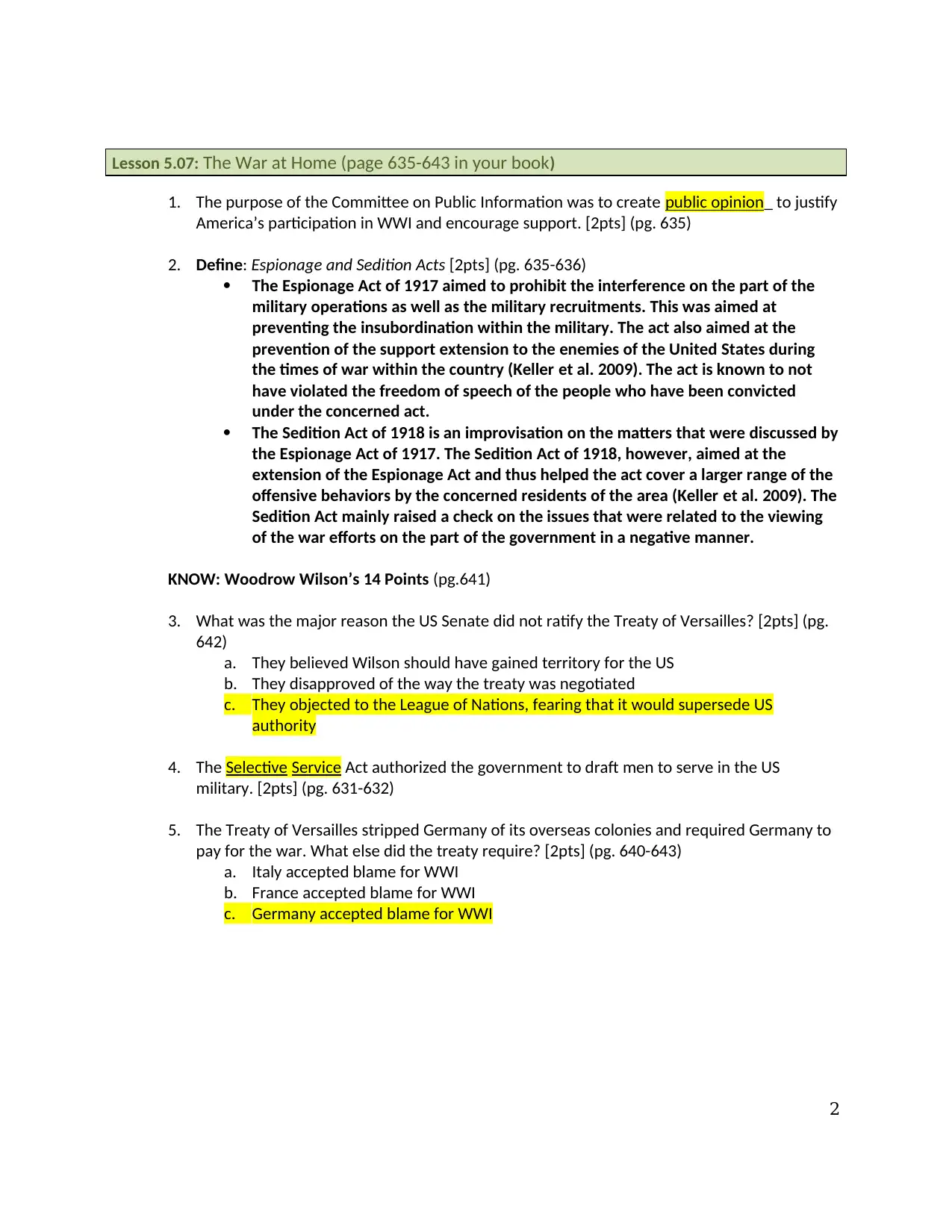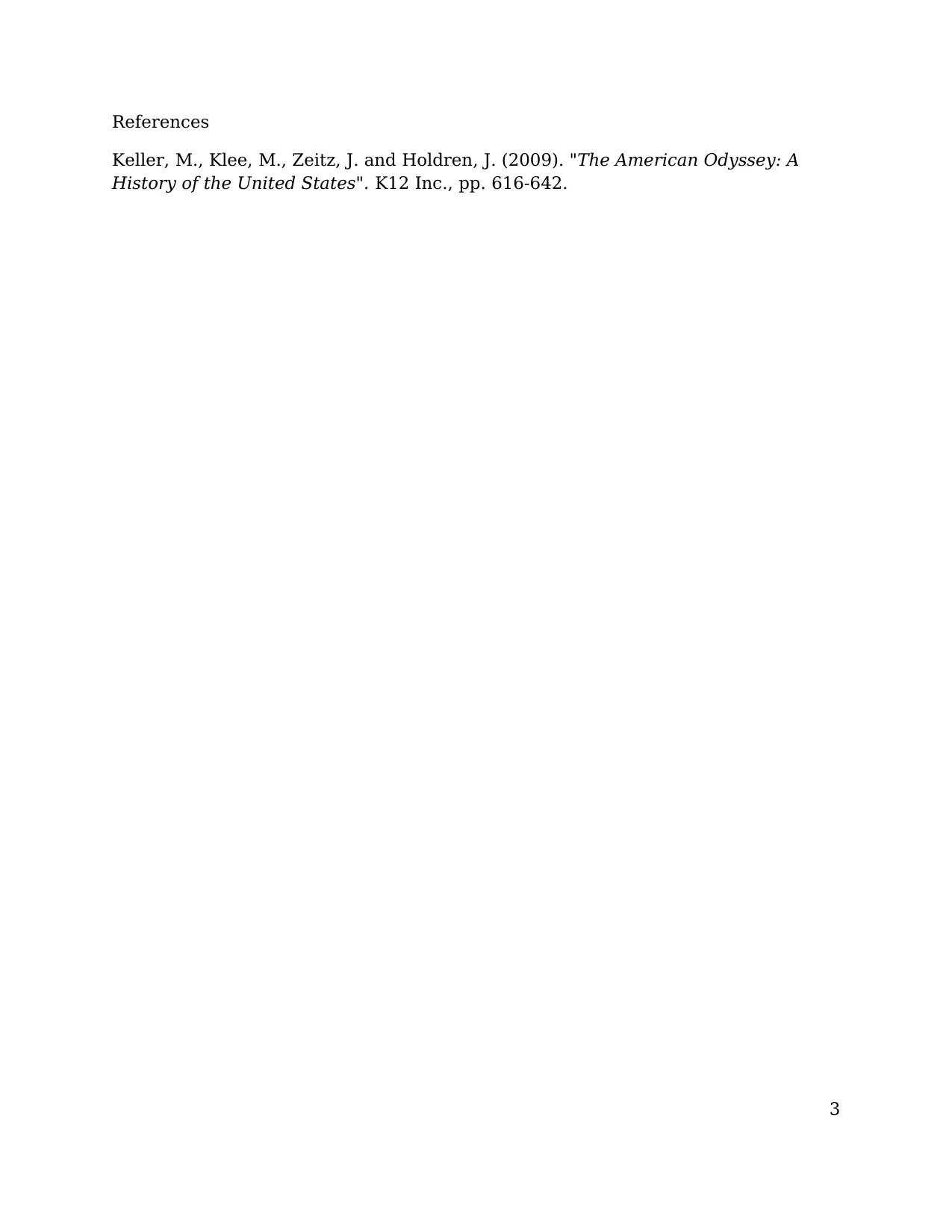Modern US History 316AG: Unit 5 - New Directions - Part 2 Solution
VerifiedAdded on 2023/06/03
|3
|768
|492
Homework Assignment
AI Summary
This assignment solution covers key aspects of Modern US History, specifically Unit 5 focusing on "New Directions." It addresses topics from Presidents and Policies during the period, including Woodrow Wilson's neutrality, Taft's dollar diplomacy, and Theodore Roosevelt's Panama Canal initiative, to the US involvement in World War I, examining the reasons for US participation and its impact on the war's outcome. The assignment also explores the home front during WWI, focusing on the Committee on Public Information, the Espionage and Sedition Acts, and the US Senate's rejection of the Treaty of Versailles due to concerns about the League of Nations. It further touches upon the Selective Service Act and the treaty's consequences for Germany.
1 out of 3




![[object Object]](/_next/static/media/star-bottom.7253800d.svg)